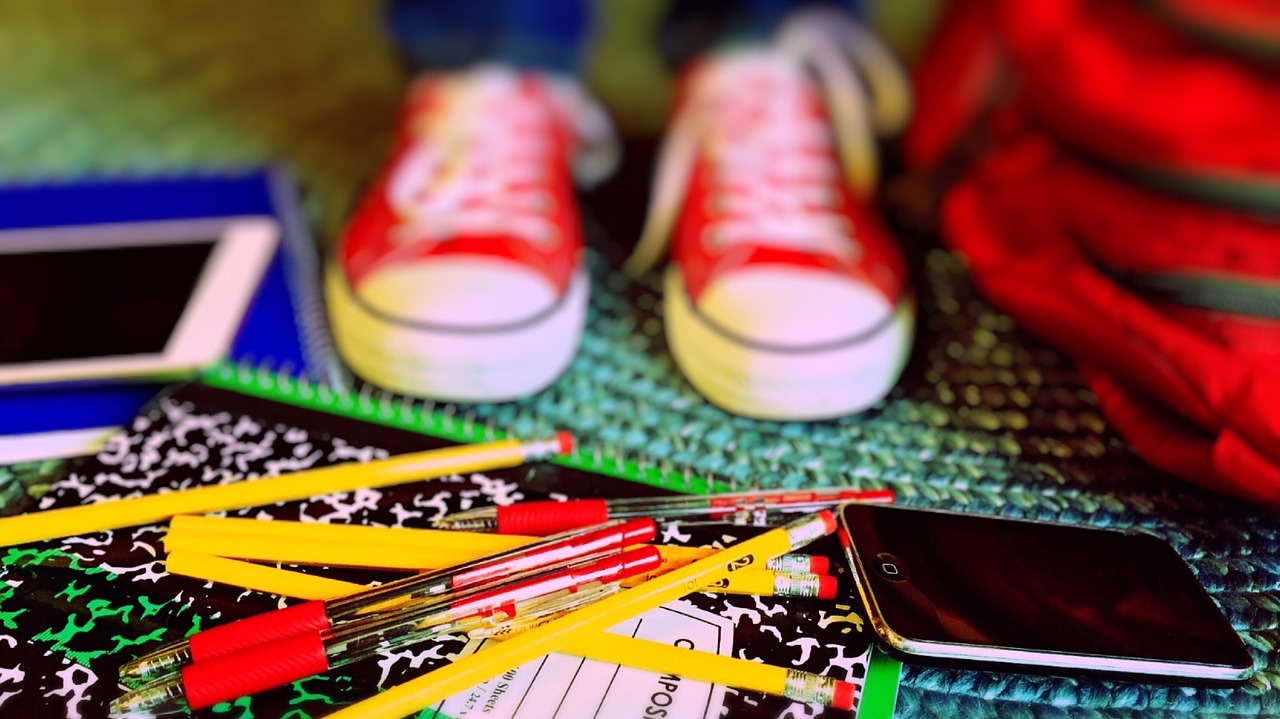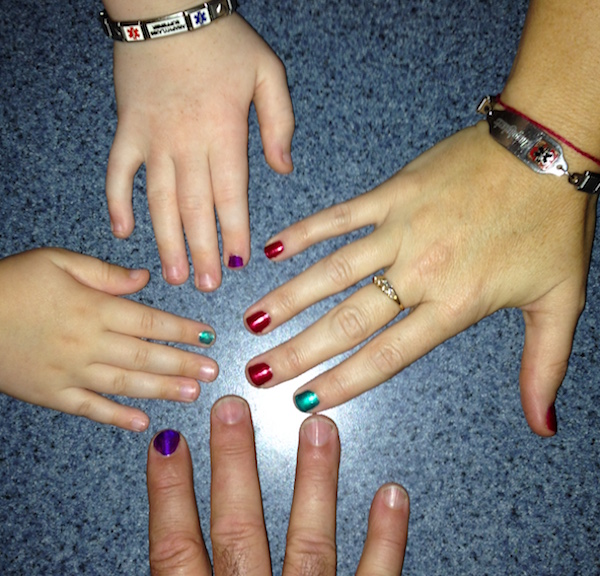Ms5 started Prep this year (sob) BUT not until Term 2. I was surprised they allowed her to start part way through the year, as Prep has become compulsory – in QLD at least – as of 2017. She was allowed to start after the Easter holidays, (just after her fifth birthday) after expressing an interest at the end of Term 1, and then proceeding to tell everyone she met that she was ‘going to school’ with her brother.
“Why didn’t she start at the beginning of the year?” is the question I see in some people’s eyes when I begin to explain her schooling journey so far… but we’re not alone in wanting to keep our child in play-based learning for longer (the fact that our small, local school still has a completely play-based Prep program was another plus for us in sending Ms5 when she was ready). Although some families have an easy time of it (our Mr7 was a classic example of easy transition), others can become quite stressed when deciding whether to delay formal schooling or not.
The recent headlines around the SUSPENSION of prep students (PREP!) were indeed shocking, but perhaps not that surprising to me. “Prep student suspensions on rise in QLD” and “Suspensions of five-year-olds doubles” are certainly worrying statistics – the reasons cited include ‘ill-preparedness’ and ‘physical misconduct’.
While there is lots of anecdotal evidence to be gleaned from the internet and social media about how much more seems to be expected of our Preps these days (eg. this mother’s story), the empirical research also supports the idea that delaying formal learning – and extending time in play-based learning environments – can be more beneficial for learning outcomes in the long-run.
This article has some interesting findings, including a link to evidence that younger children in the first year of school are at higher risk of behavioural problems and “poor academic achievement” (our poor suspended Preppies!).
- School Readiness.
What does this actually mean? That the child is the ‘right’ age according to the state government? (Prep minimum starting age differs by a few months from state to state around the country – there has been discussion around a national starting age of turning 5 by the end of Term 1.)
We could assume it means ready to read and write and do homework. For me (with what I know about early childhood development and the mainstream school system in Australia), I believe being ready for school means being ready to be ‘on-your-own’ – able to put your jumper on, find your water bottle, speak up if you need to visit the bathroom, and handle yourself in the playground during breaks. Being socially mature enough to feel confident so learning can happen. Being capable of coping in the classroom. Everyone learns to read and hold their pencil and do sums, eventually.
So, it’s not as simple as just delaying starting school until a child is a ‘magic age’. All students are, of course, individuals but all children will need help from their home carers to prepare for the school environment.Let’s break this down a bit more, using Ms5 as an example (she doesn’t mind).
- Socially mature
In order to function in the classroom and the playground, children need to be confident in their sense of self, and also have an understanding of social settings.
They need to be able to listen and put into practice what is being asked of them by the teachers-in-charge, experience they gain from regular attendance of kindergarten, day-care or playgroups/music classes/sport where they are exposed to a team leader giving directions and a group of their peers working together. These pre-school activities will also give them the opportunity to see ‘how the world works’ outside the home, to interact with other children, to learn how to take turns, respect property and people and to practice a regular routine around daily activities.
Ms5 is (like a lot of us, really) comfortable when she understands what the day will hold. Her Kindy teachers noticed she was not too happy with a sudden change in routine or when she ran out of time to finish a task. This, right at the end of the kindergarten year was one warning sign she would not be ready for the school timetable. Ms5 could identify she was not ready for school but asked to find a ‘new kindy’ in the new year. This is what we did, and the transition into a new environment (one kindy to another) was a big enough adjustment for her, which actually helped with her transition to school after Easter.
- Physically capable.
Young people are still very much ‘doers’ rather than ‘thinkers’ generally. Not only are their brains still developing but they are also still learning how their bodies work. To process new concepts they require opportunities for active or experiential learning. Take a moment to think about the young prep students in a new classroom. There is much to take in and discover before any ‘official’ learning starts. With limited time to move around or be physically free in order for their brains to process new ideas, imagine the build-up of stress or frustration that may occur (which may present as anger, physical misconduct, disruptive action etc, etc).
- ‘Acting-out’ in class (just like at home) could be a very real cry for help from some prep students, who are having a lot of trouble engaging in an environment that does not match their current learning style.
Towards the end of her Kindy year, Ms5 had JUST begun to immerse herself in imaginary worlds and physically reenacting scenarios she’d witnessed in the real world. Getting lost in her own experiential learning, where she was processing things such as emotions, relating to others, testing a range of real-life ideas within her own created settings.
Again, her lovely Kindy teachers and I agreed the ‘gift-of time’ would be of great benefit to her. I wanted to give her the freedom to enjoy this unique way of learning and processing, before learning became more directed at school. Play is not a waste of time for kids, it’s much, much more!
It’s also worth considering whether or not your child is showing an interest in attending school. Is it all YOUR idea? Have you talked about school with your child and what they should expect in their Prep year? Feeling informed and prepared plays a major role in feeling confident about any big decision or activity. (Prep is short for Preparatory; it’s supposed to be preparing them for the rest of their school life!)
If your child has been well-informed and is still not showing an interest or excitement in going to school, or (worse) is showing signs of distress at the idea of attending, take the time to listen to your child’s cues. This is a big decision! Having them on board and driving the choice to attend could mean smooth sailing and a positive first impression of schooling. An uphill battle in the initial year of schooling may have a detrimental effect on the rest of their school career.
We were very tempted to start Ms5 in school at the beginning of the year (only one drop-off, wouldn’t that be nice!), but I would have been trying to convince her it was a good idea. We figured one extra year of play-based and self-directed learning was not a great sacrifice.
Even thought it ended up being only one extra term of Kindy (and not another whole year) so far it has been the best decision for Ms5 – such a positive transition. She has not looked back!
You might also like to read:
Eight vital skills children develop in early learning and care settings
Supporting your child’s transition to school









